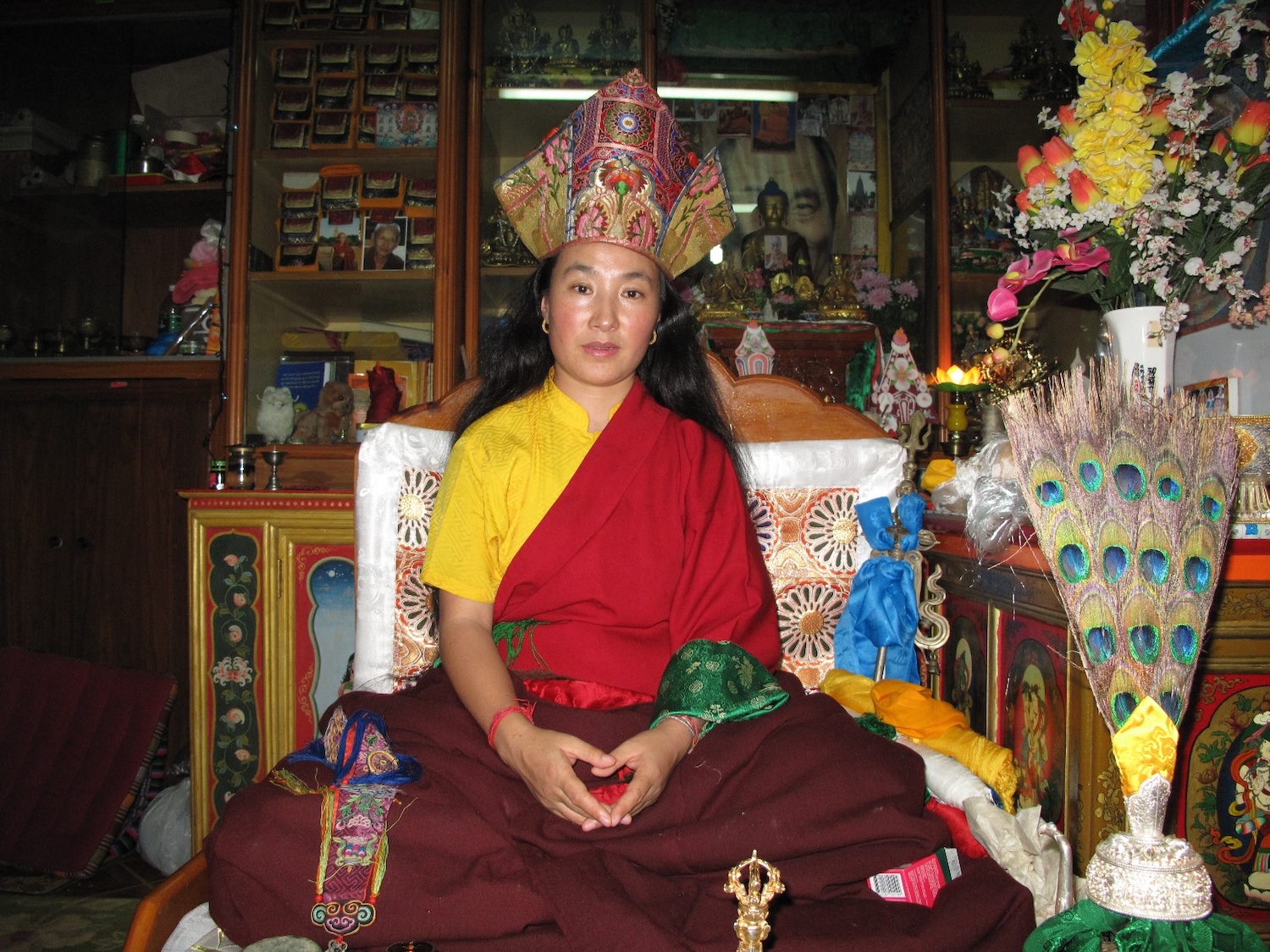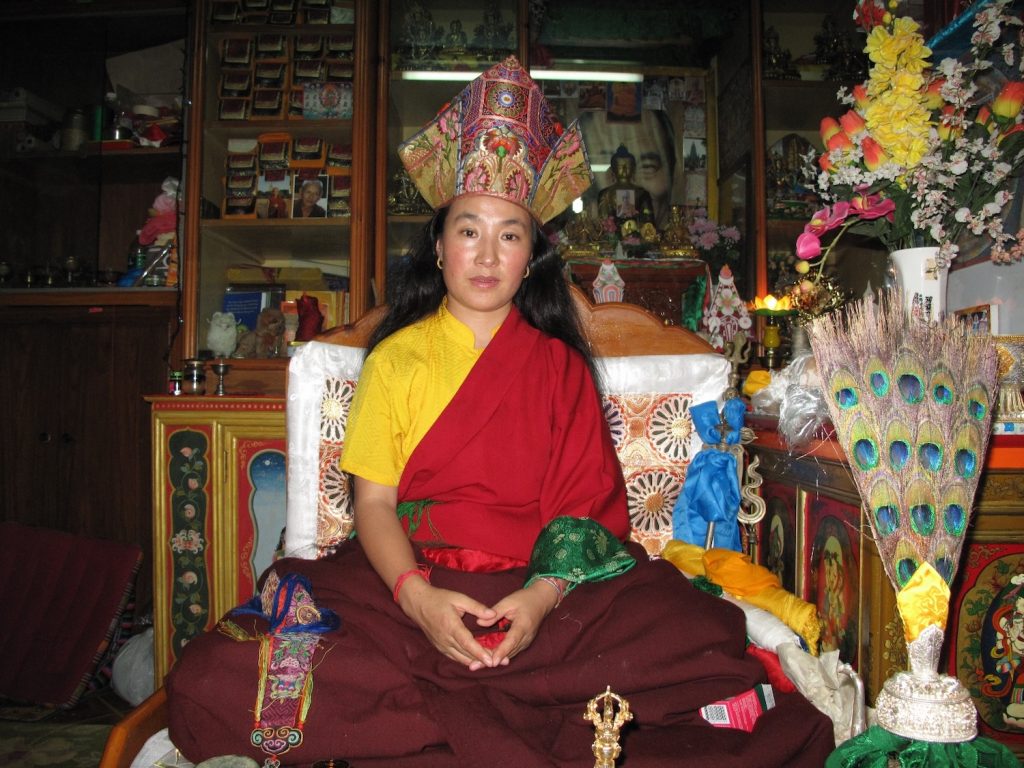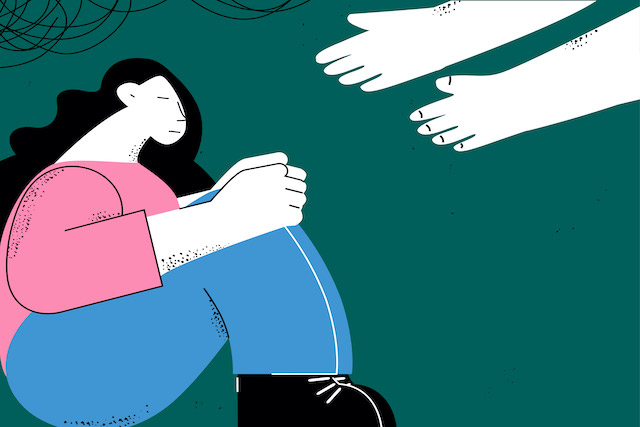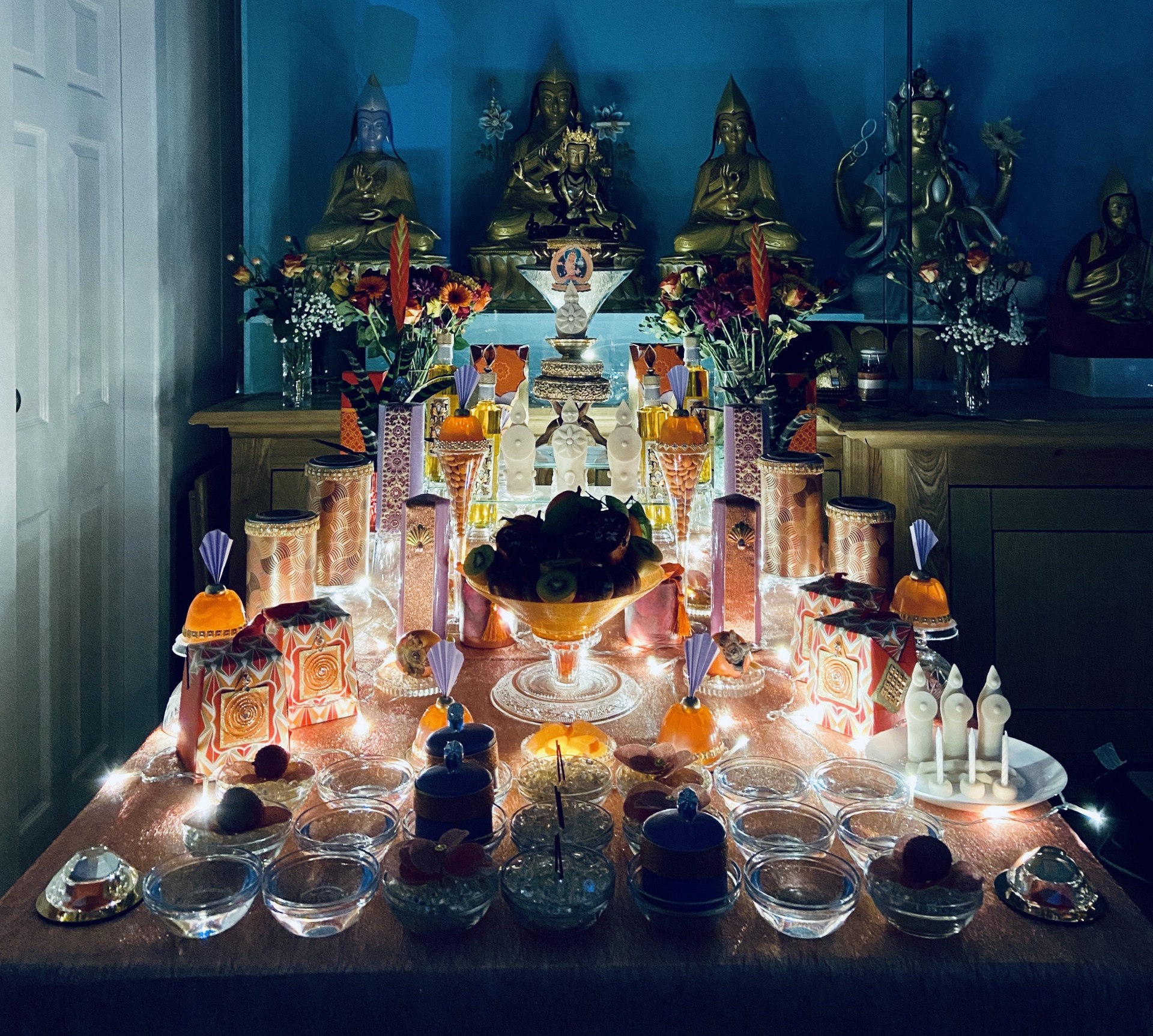‘Why Do I Need to Practice if Everything Is Empty?’
A Tibetan Buddhist teacher and oracle on avoiding nihilistic extremes, in our practice and in our lives The post ‘Why Do I Need to Practice if Everything Is Empty?’ appeared first on Tricycle: The Buddhist Review.

A Tibetan Buddhist teacher and oracle on avoiding nihilistic extremes, in our practice and in our lives
By Khandro Kunga Bhuma Rinpoche Sep 21, 2024 Photo by Khandro Kunga Bhuma Rinpoche’s Facebook page
Photo by Khandro Kunga Bhuma Rinpoche’s Facebook pageKhandro Kunga Bhuma Rinpoche, also known as Khandro-la, is a Tibetan Buddhist teacher, state oracle, and realized practitioner who assists the Fourteenth Dalai Lama in promoting world peace and interreligious harmony. As the State Medium of the Tenma Oracle, Rinpoche is recognized for her wisdom, compassion, and ability to connect with audiences from all over the world. A gifted educator, Rinpoche’s teachings emphasize achieving indestructible faith through reflection on bodhicitta and emptiness.
The following excerpt was taken from a private teaching Rinpoche gave to a group of Sri Lankan Buddhist students on July 14, 2024, which was recorded over Zoom.
***
Why do I need to practice if everything is empty? What is the purpose if nobody exists? Well, you’re right. Because that sounds like nothingness (nothing exists), and if it was nothingness, then there is no need to do anything. However, this is not the emptiness that we are discussing in buddhadharma.
What is mentioned in the question is the extreme of nihilism. When we practice dharma, this is the worst place where our view can fall: extreme nihilism. Many people take their understanding of emptiness as nothingness. It is absolutely terrible to think of emptiness as nothingness.
When we practice dharma, we need to keep ourselves in the Middle Way that is free from the extremes of nihilism and permanence. If we fall into the extreme of nihilism, into nothingness, believing that nothing exists, we undermine the truth of karma, cause and effect, and the truth of liberation and the all-knowing state of Buddhahood.
We are not saying that there is no goodness, badness, happiness, and suffering. The nonexistence that we talk about refers to things lacking an intrinsic existence because all phenomena exist through dependent origination. In that sense, things lack a true intrinsic existence. Therefore, if you have a real understanding of emptiness, you will actually perceive all of existence.
Feelings of happiness and suffering, goodness and badness, all types of feelings, coarse or subtle levels of causes and conditions, karma, cause and effect, and so on—the understanding of all of which is arrived at through the unmistaken understanding of emptiness. Having understood that the mind also lacks intrinsic existence, one also understands that all things exist because of dependent origination. The word ‘dependent’ means lacking freedom or nonindependence, thus lacking intrinsic existence. It is this intrinsic existence that emptiness refutes. Emptiness does not refute the existence of any phenomena and concepts. It only refutes the notion of intrinsic nature. Nothingness is a completely nihilistic extreme and is a view that offers no benefit.
If you have a real understanding of emptiness, you will actually perceive all of existence.
Some individuals attempt to understand the concept of emptiness by continuously looking into a specific object. They keep searching and searching and land on the conclusion that nothing exists within that object, which they mistakenly take as emptiness. That is not emptiness. That is nothingness—a hopeless view, and is absolutely the worst. In dharma, this perspective is rejected, not accepted. Nothingness is not emptiness, and definitely not the Madhyamaka Prasangika (the Middle Way Consequence school, a sub-school of the Madhyamaka school of Buddhist philosophy) view. Nothingness is completely wrong.
On the other hand, if we hold on to the idea that things exist by themselves, viewing causes and conditions as constantly and inherently existent, we risk falling into the extremes of permanence or eternalism. Believing in permanence means thinking that things never come to an end.
Within our practice of buddhadharma, we risk falling into the extremes of permanence and nihilism. Believing in the extreme of permanence means thinking that things remain static and unchanging. This view diminishes and denies karma, cause and effect, and the concepts of goodness and badness, which is very unfortunate and deeply concerning. We must avoid falling into these two extremes and instead seek “uma,” or the middle way that is free from either extreme.
All phenomena arise solely through dependent origination, through encounters, interrelations, and interdependence. At their basis, things occur when various conditions converge into these three modes of interdependency. When diverse conditions align, events unfold in accordance with causality. In accordance with the lack of independent existence, there will naturally be changes—happiness and suffering, goodness and badness, and so on. That is the truth.
So we must let go of some things and set about achieving others. Dependent origination allows both abandonment and accomplishment, leading to the attainment of ultimate happiness. All of this can happen because of dependent origination. Falling into the extremes of permanence and nihilism prevents liberation, enlightenment, and the existence of sentient beings. This is an utterly hideous view. This needs to be discarded. This just won’t do.
All phenomena exist through dependent origination. The word “dependent” implies a lack of freedom, while “origination” refers to existence, which pertains to relative truth.
Dependent origination is not something that exists only in Tibet but was taught by Buddha himself.
“All dharmas originate from causes.
The Tathagata has taught these causes,
And also that which puts a stop to these causes—
This too has been taught by the Great Shramana.
Commit not a single unwholesome action,
Cultivate a wealth of virtue,
Tame completely this mind of ours—
This is the teaching of the Buddhas.”
♦
Excerpted and adapted from Khandro Kunga Bhuma Rinpoche’s website @ 2024 Dagnang Yangsang Ghyachhen Rigzin Drubde Rangjung Neljorma Khandro Kungha Bhuma Rinpoche. All Rights Reserved.
![]()
Thank you for subscribing to Tricycle! As a nonprofit, we depend on readers like you to keep Buddhist teachings and practices widely available.
This article is only for Subscribers!
Subscribe now to read this article and get immediate access to everything else.
Already a subscriber? Log in.

 Tekef
Tekef 































